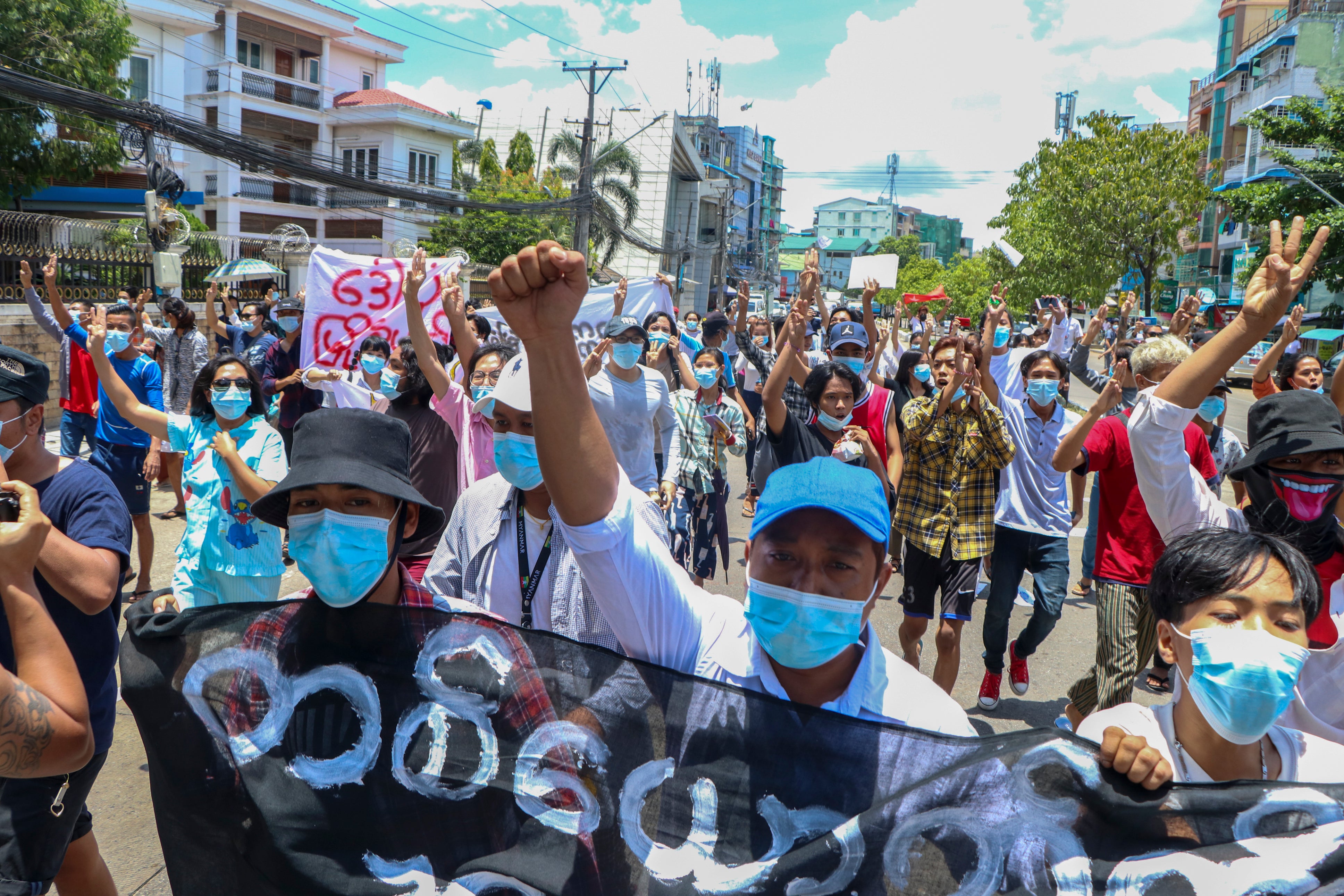UN says mass killings in Myanmar by military are ‘clear indications’ of war crimes
‘Throughout the tumult and violence of the past year, the will of the people has clearly not been broken’

Your support helps us to tell the story
From reproductive rights to climate change to Big Tech, The Independent is on the ground when the story is developing. Whether it's investigating the financials of Elon Musk's pro-Trump PAC or producing our latest documentary, 'The A Word', which shines a light on the American women fighting for reproductive rights, we know how important it is to parse out the facts from the messaging.
At such a critical moment in US history, we need reporters on the ground. Your donation allows us to keep sending journalists to speak to both sides of the story.
The Independent is trusted by Americans across the entire political spectrum. And unlike many other quality news outlets, we choose not to lock Americans out of our reporting and analysis with paywalls. We believe quality journalism should be available to everyone, paid for by those who can afford it.
Your support makes all the difference.The ongoing “spiral of violence in Myanmar”, including the widespread human rights violations and abuses, could amount to war crimes and crimes against humanity, said a new UN report.
The international community has been urged by the UN to “take concerted, immediate measures to stem the spiral of violence in Myanmar” and has denounced human rights violations by the militaryjunta that could amount to war crimes.
Michelle Bachelet, the UN high commissioner for human rights, released a new report on 15 March, titled “Situation of human rights in Myanmar since 1 February 2021” for the 49th regular session of the UN Human Rights Council.
“Myanmar’s military and security forces have shown a flagrant disregard for human life, bombarding populated areas with airstrikes and heavy weapons and deliberately targeting civilians, many of whom have been shot in the head, burned to death, arbitrarily arrested, tortured or used as human shields,” a press release, quoting the report, said.
Myanmar’s military had seized control of the government on 1 February last year after which there have been massive protests across the country against the military junta.
Critics of the junta have alleged several human rights violations, including killings and arrests, with violence being reported in several areas of the country since the coup.
In a statement, Ms Bachelet said: “Throughout the tumult and violence of the past year, the will of the people has clearly not been broken. They remain committed to seeing a return to democracy and to institutions that reflect their will and aspirations.”
The UN said the report was based on interviews with over 155 victims, witnesses and advocates, “whose accounts were corroborated with satellite imagery, verified multimedia files, and credible open-source information.”
Ms Bachelet emphasised that the findings of the report represented only a “fraction of the violations and abuses Myanmar’s people have been subjected to since the coup.”
The report pointed out that at least 1,600 people have been killed by security forces and their affiliates and more than 12,500 people have been detained.
“At least 440,000 others have been displaced and 14 million are in need of urgent humanitarian assistance, the delivery of which has largely been blocked by the military in new and pre-existing areas of need,” according to the UN statement.
Ravina Shamdasani, the UN human rights office spokesperson, said the UN has identified a “pattern” for the violence.
“We have really been able to identify a pattern over the past year, which indicates that this is planned, coordinated, systemic attacks; that there are clear indications that they would amount to war crimes and crimes against humanity,” she said.
One example of the scale of violence in the country was reported from the conflict-torn eastern state of Kayah in December last year.
At least 35 burnt bodies, including those of the elderly, women and children, were reported to have been found near Mo So village by the local Karenni Human Rights Group, which the Myanmar military claimed were an unspecified number of “terrorists with weapons” from the opposition armed forces in the village.
Join our commenting forum
Join thought-provoking conversations, follow other Independent readers and see their replies
Comments